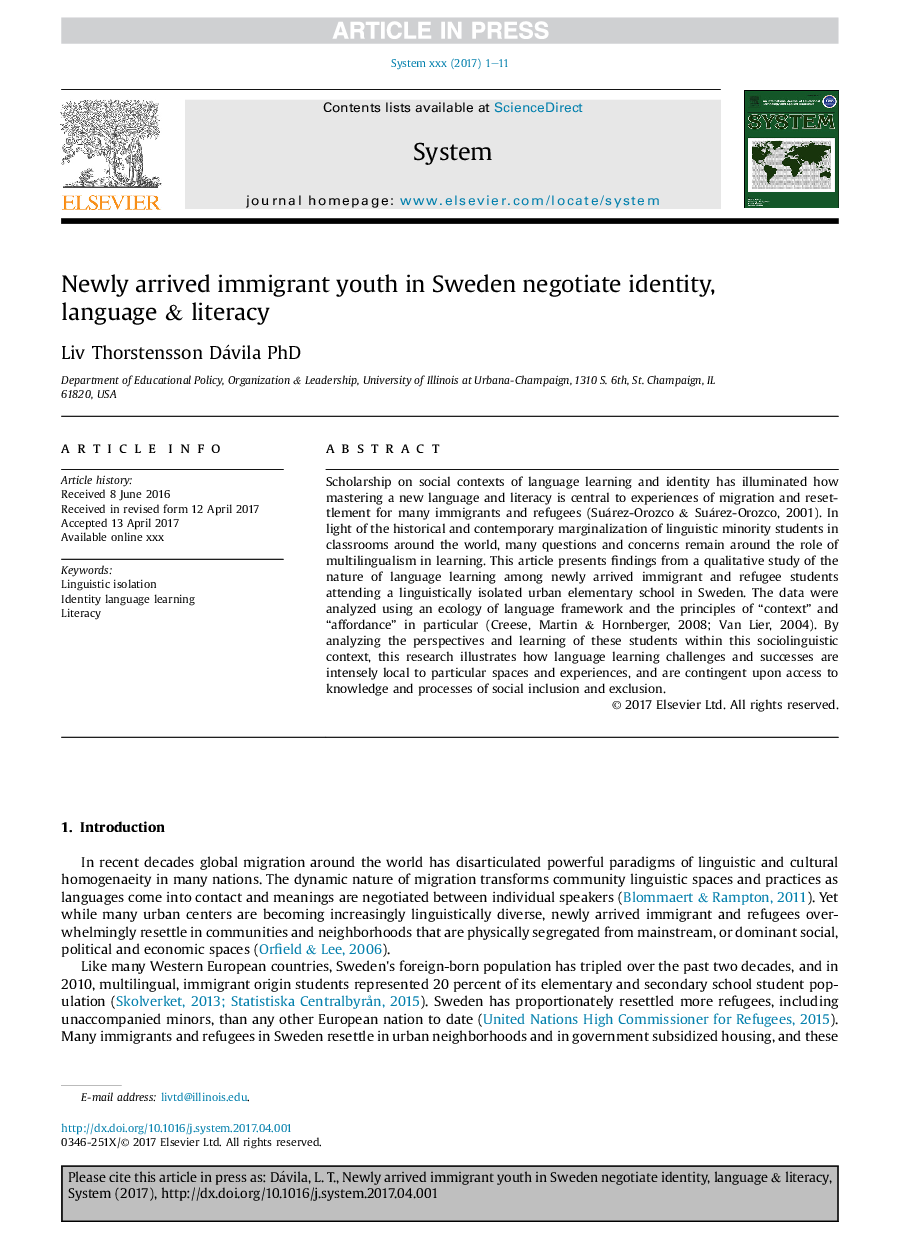| Article ID | Journal | Published Year | Pages | File Type |
|---|---|---|---|---|
| 4941386 | System | 2017 | 11 Pages |
Abstract
Scholarship on social contexts of language learning and identity has illuminated how mastering a new language and literacy is central to experiences of migration and resettlement for many immigrants and refugees (Suárez-Orozco & Suárez-Orozco, 2001). In light of the historical and contemporary marginalization of linguistic minority students in classrooms around the world, many questions and concerns remain around the role of multilingualism in learning. This article presents findings from a qualitative study of the nature of language learning among newly arrived immigrant and refugee students attending a linguistically isolated urban elementary school in Sweden. The data were analyzed using an ecology of language framework and the principles of “context” and “affordance” in particular (Creese, Martin & Hornberger, 2008; Van Lier, 2004). By analyzing the perspectives and learning of these students within this sociolinguistic context, this research illustrates how language learning challenges and successes are intensely local to particular spaces and experiences, and are contingent upon access to knowledge and processes of social inclusion and exclusion.
Keywords
Related Topics
Social Sciences and Humanities
Arts and Humanities
Language and Linguistics
Authors
Liv Thorstensson PhD,
